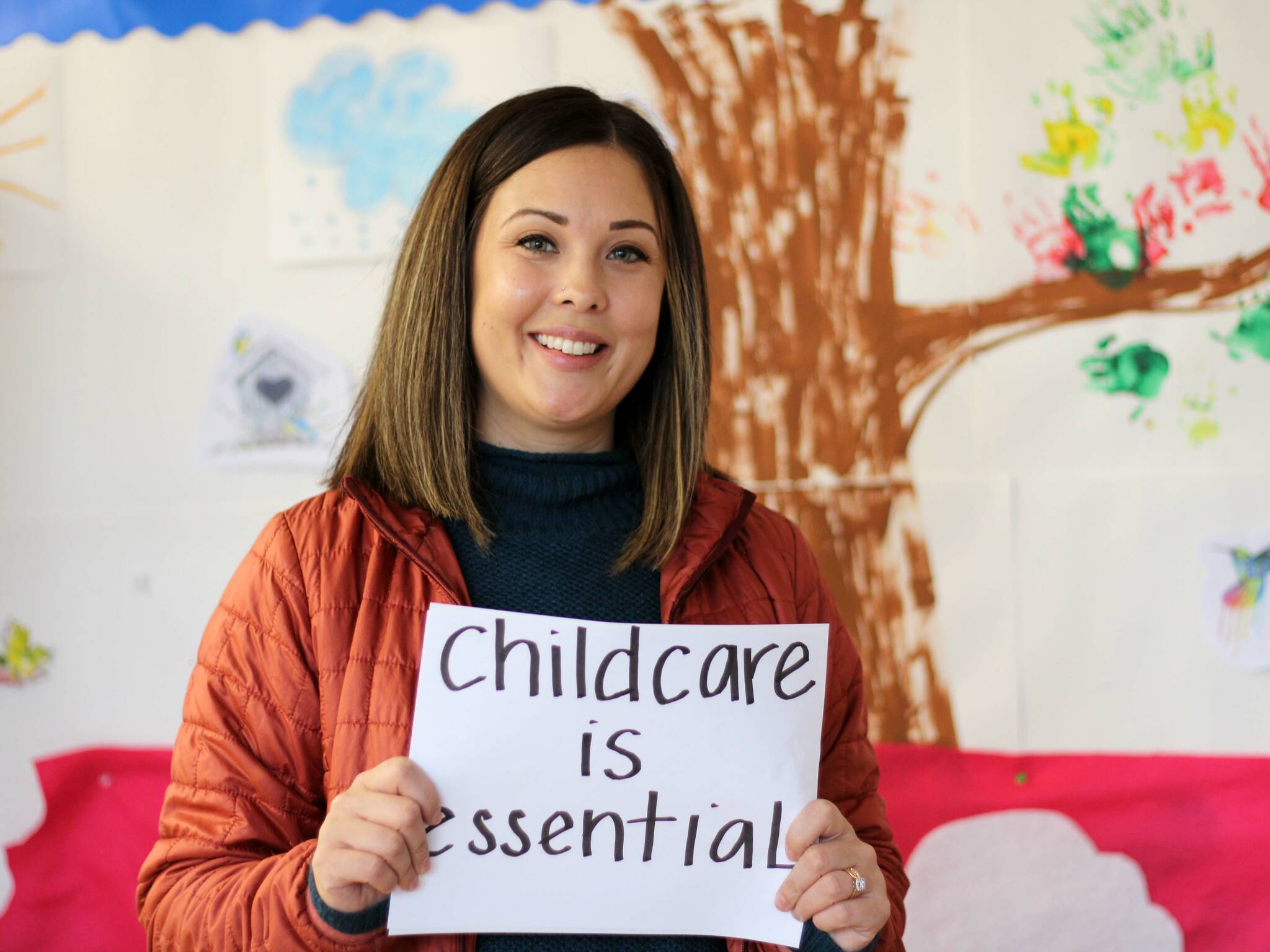Parents of young children in Alaska face significant barriers to finding affordable, reliable child care, according to a new report by the U.S. Chamber of Commerce Foundation.
The report, called “Untapped Potential in AK” found that 61% of Alaskans live in “childcare deserts,” and 77% of parents missed work in the preceding three months due to gaps in child care.
“This really limits Alaskan’s ability to find and keep work long term,” said Kati Capozzi, President and CEO of the Alaska Chamber. “We knew it was going to be grim. It was a problem before the pandemic, and now, a top issue that my membership talks about. We’ve never really taken a look at the economic impact of child care. It’s quickly risen to the top of issues for my members.”
According to the report, child care issues result in an estimated $165 million loss each year for the state’s economy. That translates to an estimated $13 million loss in annual tax revenue and a $152 million cost to businesses due to employee turnover costs and absences.
“We have all these Alaskans who could be contributing and the first most important thing they need is child care that’s dependable and reliable,” Capozzi.
According to the report, about 7% of parents in Alaska say they have left a job voluntarily due to childcare issues, and 36% report postponing school or training programs due to childcare issues.
Local struggle
Kayla Svinicki, director and owner of Little Moon Child Care, said she sees the struggles first hand.
“The need for child care seems to be fairly healthy, and it is difficult to accommodate due to staffing shortages. There’s not a lack of families for looking family care,” Svenicki said.
[City Hall discussion moves forward]
Svenicki said she started her center-based business shortly before the pandemic-related lockdowns began and said the last two years have been tough for child care providers.
“We care so much. It radiates off our building. When the kids are here, and it’s happening, it feels good in my bones. But, the system needs a better foundation to stand on,” she said.
Svenicki said her facilities are among the newest in Juneau, and though she has physical space to accommodate more children, she doesn’t have the staffing. She currently has a waiting list.
“Child care really needs to be part of the infrastructure of this country. People wonder why more people aren’t going back to work. It’s because people don’t have anyone to take care of their kids,” Svenicki said.
Amanda Gornik, director of Gold Creek Child Care, said the center has a waitlist of about 125 children. She said staffing challenges are preventing the center from functioning at full capacity.
“I think with COVID, the staff has been stressed to the max. A lot of staff members are leaving education,” Gornik said, adding that she’s heard of local daycares forced to close due to a lack of staffing.
“In Juneau, we just need more centers up. Demand is a lot higher than what’s available,” Gornik said.
Costs
According to the chamber report, in places with a lack of childcare, families across the income spectrum struggle to find care.
In Juneau, the cost of care for a young child can take a bite out of a family’s budget — costing more over a year than tuition at the University of Alaska Southeast.
Svinicki said the monthly cost for the care of a baby is $1,150 at her center. Gornik said full-time care costs between $1,053 and $1,285 at Gold Creek Child Care.
By comparison, the cost for in-state residents to attend the University of Alaska Southeast on a full-time basis (15 credit hours) is $3,510 a semester or $7,020 a school year — about half of what a year of care costs for a baby.
Despite the costs to families, daycare operators struggle to make ends meet.
[UA President: University has turned a corner of funding]
“This is not a business where you can cut corners or cut costs,” Svinicki said.
Svinicki said that a subsidy from the City and Borough of Juneau helps cover the cost of some food at the center and that government relief funds, which will start to flow soon, will help the bottom line. But, challenges remain.
“We can’t support it by ourselves,” she said.
Svinicki said she’s excited about a new partnership with Coeur Alaska Kensington Mine.
According to Rochelle Lindley, community and government affairs manager at Coeur Alaska Kensington Mine, the company has created an employee benefit by pre-paying for six slots and offering them to employees at a subsidized rate.
Lindley said the mine has also made in-kind donations to the center.
“It’s a really new benefit–pushed out around holidays,” Lindley said. “We are really excited to see how this can benefit our employees and for recruitment.”
• Contact reporter Dana Zigmund at dana.zigmnund@juneauempire.com or 907-308-4891.


